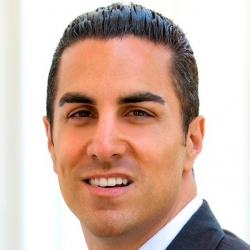California Assemblyman Mike Gatto introduced legislation on December 2 which would legalize and regulate online poker in the state in 2015. The legislation has many similarities to a tribal gaming bill pushed last summer, but appears to soften that bill’s stance on bad actor laws in an attempt to moderate positions by both sides in the bad actor debate.
At present, no companion bill has been introduced in the California Senate. What Assemblyman Gatto appears to be doing is introducing new ideas into the debate, in hopes of giving two intransigent sides a chance to make concessions.
Similarities with Jones-Sawyer’s Bill
There are a number of similarities to the bill championed by Assemblyman Reggie Jones-Sawyer in summer 2014. The bill would limit licensed operators to the land-based tribal casinos and card rooms in California. Both bills would take parallel approaches to online and offline licensing, fees, and law enforcement procedures.
In a key passage, both bills sought to exclude “bad actors”–that is, companies, individuals, and intellectual property involved in US-facing online gambling after December 31st, 2006.
Licensing for Affiliates
Both California bills set the bar very high for poker affiliates wanting to enter the California gaming market. Both also require an effort on the part of gamblers to register an account at one of the licensed sites. To sign up for an account and make a deposit, players would need to go to a brick-and-mortar casino. While many such casinos exist in California, this is a far cry from most online poker sites, which allow for computer registration and online deposits.
Differences with Jones-Sawyer’s Bill
While there many similarities, certain differences between AP 9 and the older bill exist. Though bad actors are excluded, the new proposed law would allow those involved in illegal gaming to eventually join the industry.
The new proposed law uses the term “covered assets” to refer to brand names, software, technology, customer information, or other data acquired through bad actor practices. For any company which “has purchased or acquired the covered assets of any entity” associated with the bad actor practices, “The commission shall issue a finding that a license applicant is not suitable to obtain a license.”
Amaya Gaming and PokerStars Targeted
That would seem to bar Amaya Gaming from gaining a license in California, because Amaya Gaming purchased PokerStars and FullTilt Poker with the purpose of using its good reputation with US authorities to license those brands in the American online gaming market. As Amaya CEO David Baazov recently said in an interview, his company has 60 U.S. licenses and a fine relationship with American regulators.
It’s clear Amaya Gaming and PokerStars are the companies being targeted by Gatto’s legislation. But Mike Gatto leaves those companies a way into the market, if they follow certain procedures.
Waiving the Bad Actor Clauses
Under AP 9, the California Gaming Commission can waive the bad actor clauses of the legislation for a party “who demonstrates by clear and convincing evidence” that their presence will not cause trouble for the California online poker industry.
The key clause of AP 9 which discusses this concept is (7)(c)(ii), which states, “The applicant’s use of the covered assets in connection with intrastate Internet gaming will not adversely affect the integrity of, or undermine public confidence in, intrastate Internet poker or otherwise pose a threat to the public interest or to the effective regulation and control of intrastate Internet poker.”
The bill does not specify the means by which Amaya Gaming would demonstrate clear and convincing evidence, so that would have to be hammered out by the lawmakers in subsequent negotiations, or by the gaming commission itself.
Mike Gatto’s Press Release
In a press release to announce his new bill, Mike Gatto made a call for action. Gatto said, “The status quo is a lost opportunity. California could receive significant revenue for merely regulating and legitimizing an industry that Californians already participate in, but send their dollars overseas.”
The Assemblyman called on California’s leaders to embrace their role as a leader in the tech industry. He added, “California has led the world in computer and Internet innovation, and there is no good reason why we can’t continue to lead with a sensible online-poker framework. AB 9 borrows from time-tested business practices that will improve our government finances and keep our money in our home state.“

